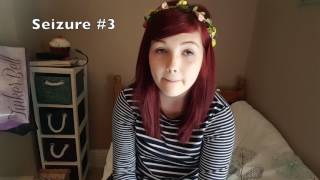Monday, 12 January, 2026г.
















Где искать: по сайтам Запорожской области, статьи, видео ролики
пример: покупка автомобиля в Запорожье
Understanding Epilepsy, an Under Recognized Ilness
One out of every hundred people around the globe suffers from epilepsy, or chronic seizures.
Nicole Hartmann, a twenty-two year old graduate student, had her first seizure at age 15. She said: "I would lose focus. If you would talk to me, I couldn't understand what you were saying -it almost sounded like a foreign language that I didn't know."
A seizure is a brief disruption of electrical activity in the brain. There are several different types, ranging from mild staring spells to full body shaking with loss of consciousness. But not everyone who has a seizure will go on to develop epilepsy.
Andrea Racioppi who is the Associate Director at the Epilepsy Foundation of NJ defined epilepsy as "recurrent -- i.e. two or more -- unprovoked seizures" and adds that "One out of every 10 people will have a seizure in their lifetime and actually never have another one".
Like any other chronic illness, epilepsy affects not only the patient, but their loved ones as well.
The lives of Morgan Earle and her parents have taken a radically different turn since Morgan had her first seizures as an infant.
Jean Earle, Morgan's mother said that "Morgan had over 100 seizures a day when she was born and for several years, and she's had three neurosurgical operations to remove most of her left frontal lobe to try and control the seizures. It's a horrible feeling when seizures just seem to consume your child. You feel like your child isn't there anymore and you're doing everything you can to rescue them."
Nicole's mother has also had her ups and downs. "Its your child..and you want to protect her...from anything. And having no control over it..it was just devastating." said Nicole.
Morgan's type of epilepsy, caused by a rare brain condition known as cortical dysplasia, is so severe that medication and surgery haven't stopped the seizures. Nicole, on the other hand, has been seizure-free for the past seven years.
Racioppi also emphasized the importance of epilepsy "as a spectrum, as with autism. Spectrum meaning that there's one end of the spectrum -- these are people who have tried every medication, have had brain surgery, have had medical devices installed and, unfortunately, they are not getting seizure control then the other end of the spectrum is a person that is on medication, controlled, no side effects and are living life as we all do."
The staff at the Epilepsy Foundation tries to reduce stigma by talking about seizures and wants to get families talking as well.
Jean Earle pointed out the help they got from talking with other families early on.
Morgan now works part-time at a local child care center. Nicole is on the Epilepsy Task Force in NJ and hoping to attend medical school.
Nicole now has plans for others who are dealing with epilepsy; "I want to be involved in the community as well and just be an advocate for those who are still dealing with this... you know, use my knowledge and my experience to help those who are newly diagnosed and who are still struggling with it".
Morgan has the most practical advice. She said "Just do what you're doing.. and don't let the seizures get in your way."
In one case, a life permanently altered. In another, the disease almost unrecognizable. Public education, awareness and support will go a long way towards erasing the stigma associated with epilepsy and other chronic illnesses.
Теги:
Ebru TV Epilepsy Epilepsy Foundation EFNJ Epilepsy Youth Council Seizure Epilepsy Stigma Epilepsy NJ
Похожие видео
Мой аккаунт


 У вашего броузера проблема в совместимости с HTML5
У вашего броузера проблема в совместимости с HTML5


